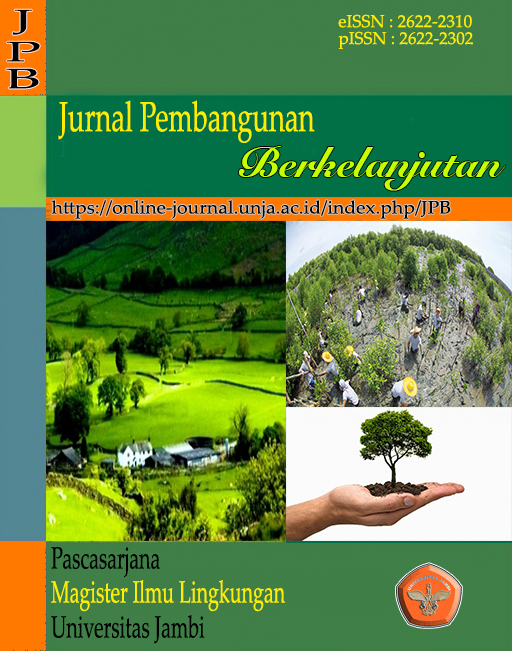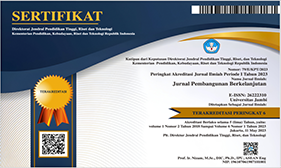Covid-19 Bantu Lingkungan Bangkit Kembali Dari Pandemi Menuju Pembangunan Berkelanjutan
DOI:
https://doi.org/10.22437/jpb.v4i2.11473Keywords:
Covid-19, lingkungan, pembangunanAbstract
ABSTRACT
The Covid-19 pandemic has become a historic momentum for the entire world which has almost weakened the entire wheel life. However, it does not weaken the determination to always try to improve a better life. Indonesia is a developing country making a pandemic a positive thing in realizing its goals sustainable development (Sustainable Development Goals / SDGs). The Sustainable Development Goals and Covid-19, reports that of the 17 SDGs goals, Indonesia has been able to realize the 10 existing goals, between other sustainable urban and community improvement, terrestrial and marine ecosystems, gender equality, partnerships to achieve goals. Covid-19 becomes an opportunity for the earth as well as to buildblue sky jernihand clear the air. During times of worldwide lockdown, the view of the blue sky creates a feeling community optimist for a cleaner and better environment. According to Arora et al. (2020) says that "Although the corona virus vaccine is not available, the corona virus itself is a vaccine for the earth and we are humans is the virus â€,. Although Covid-19 can help recover from climate change by improving better air quality. It is possible that Covid-19 is only a stimulus and trial for humans around the world and with the existence of Covid-19 the earth is a little better.
Keywords: Covid-19, Blue sky, Sustainable development
Downloads
Downloads
Published
How to Cite
Issue
Section
License
Copyright (c) 2022 Jurnal Pembangunan Berkelanjutan

This work is licensed under a Creative Commons Attribution 4.0 International License.
1. Authors retain copyright and grant the journal right of first publication with the work simultaneously licensed under a Creative Commons Attribution 4.0 International License that allows others to share the work with an acknowledgement of the work's authorship and initial publication in this journal.
2. Authors are able to enter into separate, additional contractual arrangements for the non-exclusive distribution of the journal's published version of the work (e.g., post it to an institutional repository or publish it in a book), with an acknowledgement of its initial publication in this journal.
3. Authors are permitted and encouraged to post their work online (e.g., in institutional repositories or on their website) prior to and during the submission process, as it can lead to productive exchanges, as well as earlier and greater citation of published work (The Effect of Open Access)











